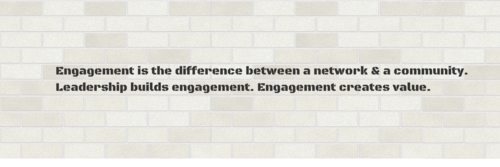Our traditional management models die hard.
Many organisations are starting to consider how they build new digital capabilities like agile, hypothesis-based experimentation, design thinking, analytics and collaboration. Yet when they start to plan these changes to more digital ways of working, they use management models from pre-digital management:
- transactional approach to interventions
- solutions defined by expertise
- linear implementation approaches
- waterfall project plans
- push compliance and competency models focused on supply of new skills to employees
- narrow delivery models using only learning and classroom learning
- limited if any measurement of the changes
These approaches seek to make organisations ready for more digital management using the methods of traditional management.
Digital Dog Food
We can do better than this. We can start by asking projects to build digital capabilities to eat their own dog food. If nothing else, they will learn on behalf of the organisation the challenges and opportunities of new digital ways of working.
New Digital Capability Building
Projects to build digital and responsive capabilities in organisations can be role model projects for those capabilities. Taking a leaf from the digital tool suite challenges those building capability to consider capability building that offers:
- many paths on the learning journey as part of career paths and achievement of learner goals
- mobile options, social learning and performance support to sustain learning in the digital work place and wherever is convenient for employees
- offers people pull and push options across the range of 70:20:10 learning with options also for the depth of content and timing of learning experiences
- encouraging people to seek out and share learning options from the depth of learning available in their personal networks
- engaging programs built from deep insights into the change and capability challenges for employees in working in new ways
New Digital Delivery
The projects to build new digital capabilities themselves can adopt digital approaches by shifting to:
- agile delivery
- minimum viable solutions
- hypothesis-led test and learn iteration
- considering needs for adaptive change and related changes on the wider organisational system
- encouraging learners to act as a community to support successful delivery of the project goals.
- strong analytics supporting not just the delivery of learning but also the strategic contribution of the capability building
- leveraging collaboration and networks in and outside the organisation to build capabilities, particularly in making smart decisions on what to build and what to buy.
More Effective
Working on transformation projects in these new ways won’t always be efficient. It definitely won’t be easy. However, using the tools and approaches of digital management enables organisations to learn and evolve their goals through the process of transformation. This learning will be the path to step changes in effectiveness and a better match to employee and organisational needs. At a minimum, it helps ensure that the project creates a team of highly capable change agents to help drive the next phase of the journey.
